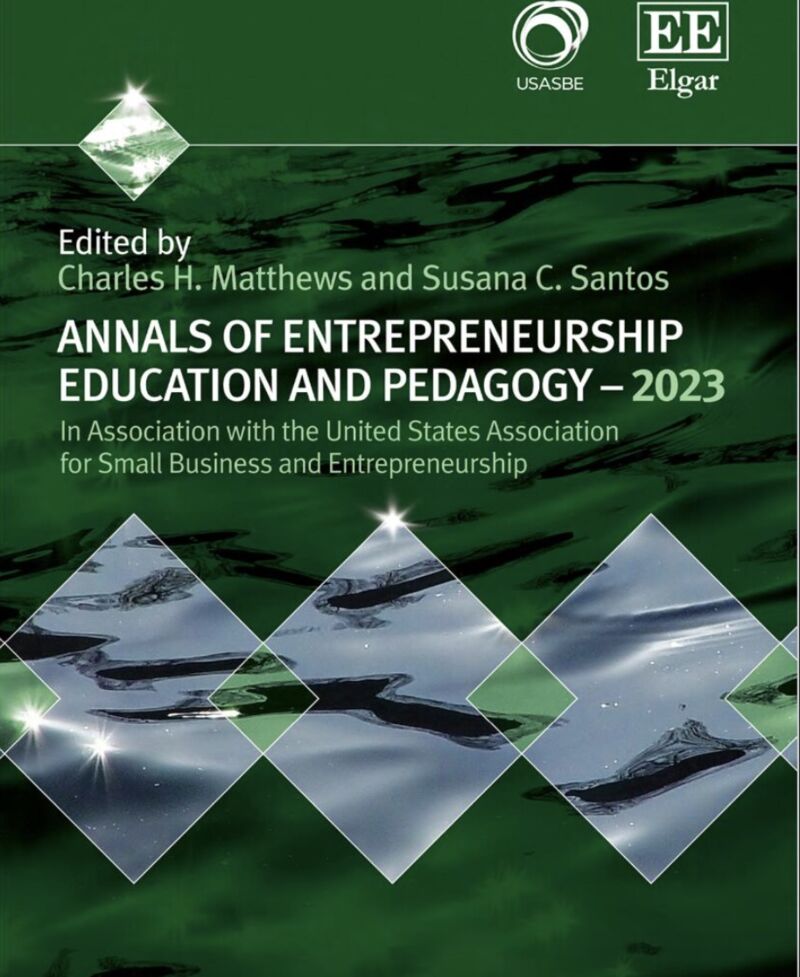PUBLICATIONS
RESEARCH STREEM ON IMPACT OF AI ON ENTREPRENEURSHIP EDUCATION
- Somià T. and Vecchiarini M. (2024). Navigating the new frontier: the impact of artificial intelligence on students’ entrepreneurial competencies, International Journal of Entrepreneurial Behavior & Research, Vol. 30 No. 11. https://doi.org/10.1108/IJEBR-08-2023-0788
Artificial Intelligence, Creativity and Entrepreneurial Ideas Assessment: Can AI Contribute to Enhance Students’ Entrepreneurial Competencies?
This paper explores the transformative impact of AI on entrepreneurship education, particularly in fostering key entrepreneurial competencies.
The findings reveal that tools like ChatGPT can significantly boost the entrepreneurial competencies of students, especially in refining their ability of Valuing Ideas. The exploratory study conducted with undergraduate entrepreneurship students, challenging them to use ChatGPT to enhance their Business Model Canvas (BMC). The insights we gained also shed light on how the BMC can be linked to the development of crucial entrepreneurial competencies.
The article is accessible through open access at the link: https://zenodo.org/records/13342061
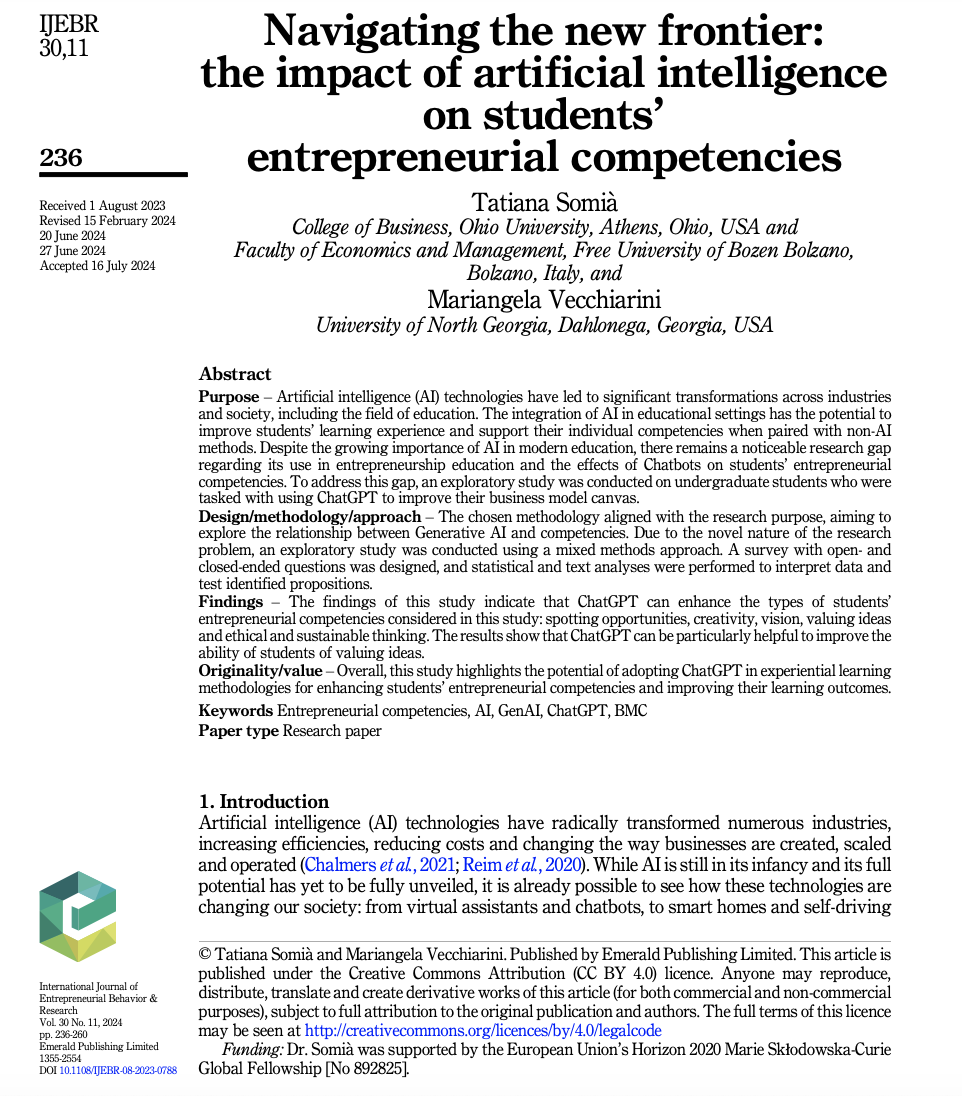
- Vecchiarini M. and Somià T. (2023). Redefining Entrepreneurship Education in the Age of Artificial Intelligence: An Explorative Analysis, The International Journal of Management Education, Volume 21, Issue 3. https://doi.org/10.1016/j.ijme.2023.100879
Could Artificial Intelligence truly be the game-changer that transforms entrepreneurship education?
This is the question we set out to explore, and the findings are detailed in this article.
Our study revealed that ChatGPT can enhance various aspects of entrepreneurship education.
From exploring and validating innovative business ideas to fine-tuning pitch presentations, ChatGPT can be a powerful ally in fostering entrepreneurial competencies.
The paper is Open Access also available at this link:
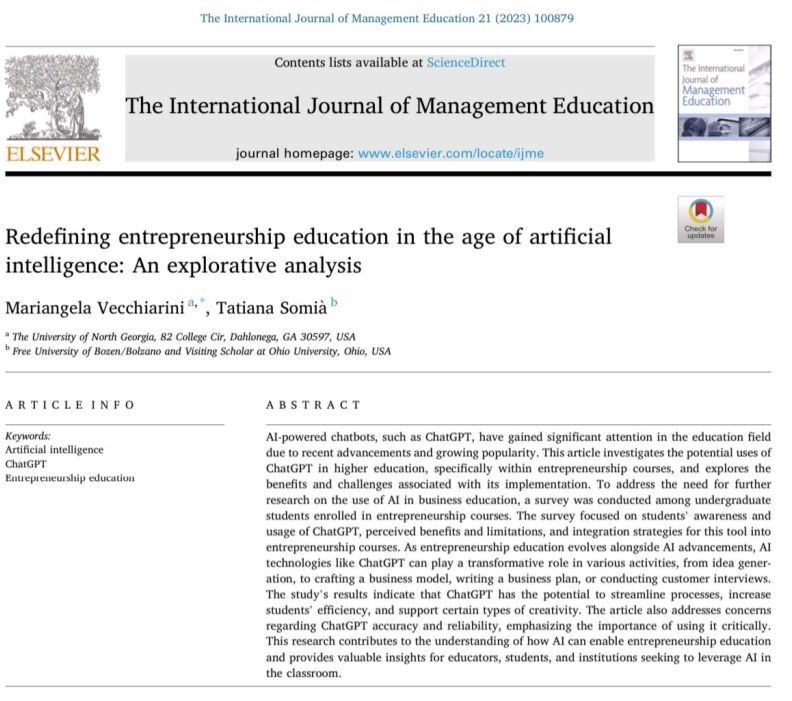
RESEARCH STREAM ON ENTREPRENEURIAL STUDENTS’ COMPETENCIES
- Somià T., Pittaway L., Benedict P. (2024). Rethinking Entrepreneurial Competencies: A Gender-Focused Analysis of Students’ Perceptions. The International Journal of Management Education, Volume Vol. 30 No. 3. https://doi.org/10.1016/j.ijme.2024.101038.
Are there Gender Differences in Entrepreneurial Competencies Perception?
•This research explores the intricate dynamics of perceived entrepreneurial competencies among entrepreneurship students.
•The aim is to uncover the underlying abilities that shape competencies and to investigate gender differences in perception.
•The study adopts a mixed-methods approach combining quantitative and qualitative techniques.
•Opportunity Recognition and Conveying a compelling visionare abilities perceived as crucial by male and female students.

The paper is Open Access also available at this link:
https://zenodo.org/records/10032891
RESEARCH STREAM ON COMPETENCIES OF WOMEN ENTREPRENEURS
- Theoretical Paper: Somià, T. (2022). “A Dynamic Gender-Barriers Framework to Women’s Entrepreneurship: A Competency-Based Perspective.” Journal of the International Council for Small Business, October 13, 2022, 1–11. https://doi.org/10.1080/26437015.2022.2122908
- Video abstract: https://t.co/UuxxFMPmQE
This paper presents a new dynamic gender-barriers framework that aims to provide an updated, layered, and contextualized view of barriers and seeks to further a holistic understanding of women’s entrepreneurship and its evolution.
This work focuses attention on individual barriers, related to a lack of specific competencies, and offers recommendations to practitioners, policy makers, and ecosystem supporters on how to effectively contribute to the competency development of women entrepreneurs.
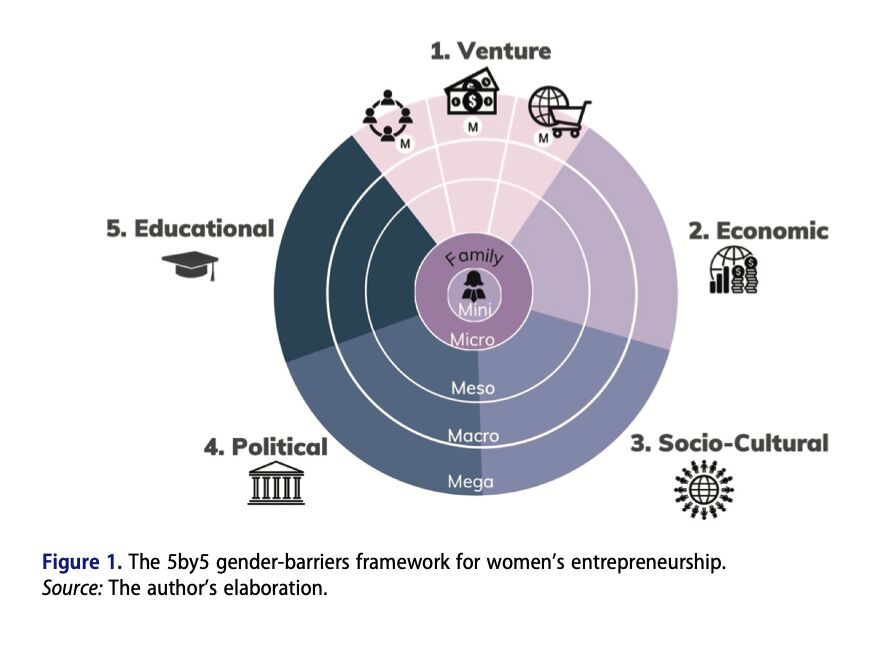
Strategies and policies to develop the competencies, through experiential entrepreneurship programs and executive coaching initiatives, can produce a ripple effect across different layers of society, contributing to reduce the gender gap.
The paper is green open access, the accepted version will be available on April, 13th 2024 at this link:
https://zenodo.org/records/10017336
RESEARCH STREAM ON COACHABILITY COMPETENCIES
- Somià T, Lechner C., Pittaway L., (2024) “Assessment and Development of Coachability in Entrepreneurship Education” submitted in The International Journal of Management Education, Volume 22, Issue 1, https://doi.org/10.1016/j.ijme.2023.100921
This study adopts a competency-based approach to study coachability in entrepreneurship education and competency assessment tools, such as Behavioral Event Interviews and a coachability survey.
This research adopts a mixed-methods design combining quantitative and qualitative techniques. The findings show that coachability has a positive relationship with educational outcomes. Experiential learning can contribute to the development of coachability competencies.
The paper is Open Access also available at this link:
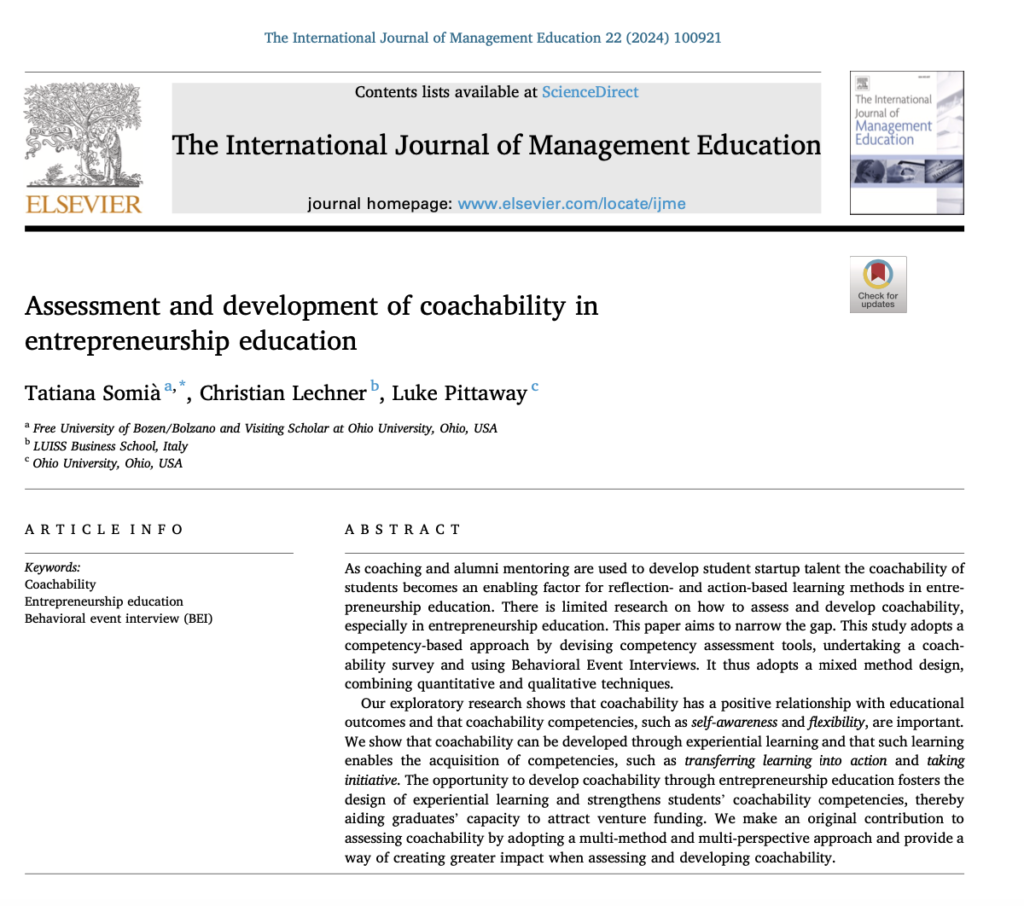
- Book chapter: Somià, T. (2022) ‘Understanding coachability and its relevance to entrepreneurship education’, in Annals of Entrepreneurship Education and Pedagogy–2023. Chapter 10, Edward Elgar Publishing, pp. 197–217. https://doi.org/10.4337/9781803926193.00018
This chapter contributed to understanding the coachability construct, and its relevance to entrepreneurship education, bridging extant studies by integrating insights from competency theory, coaching literature, and practice.
To understand and operationalize the coachability construct, a competency-based approach has been adopted and applied to entrepreneurship education.
